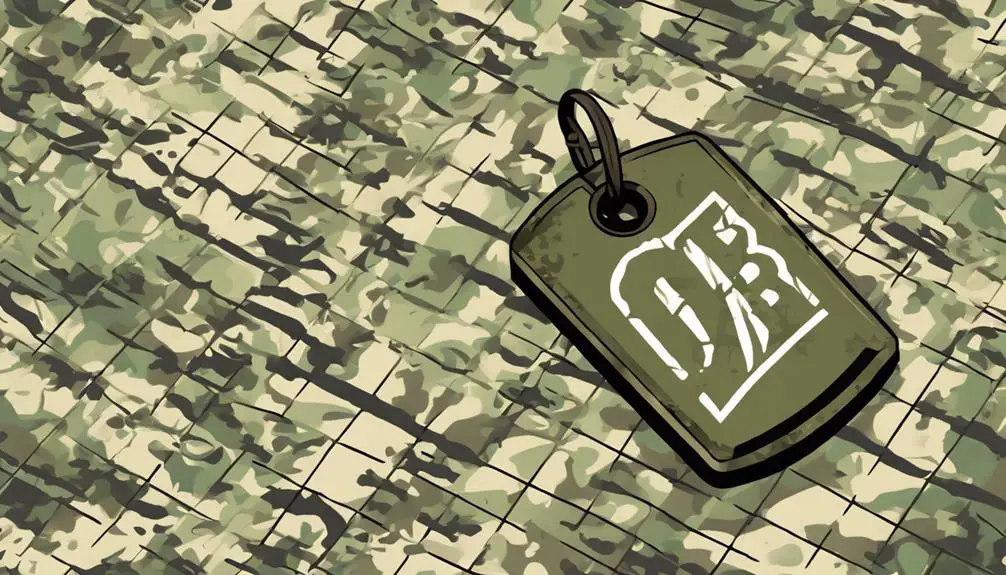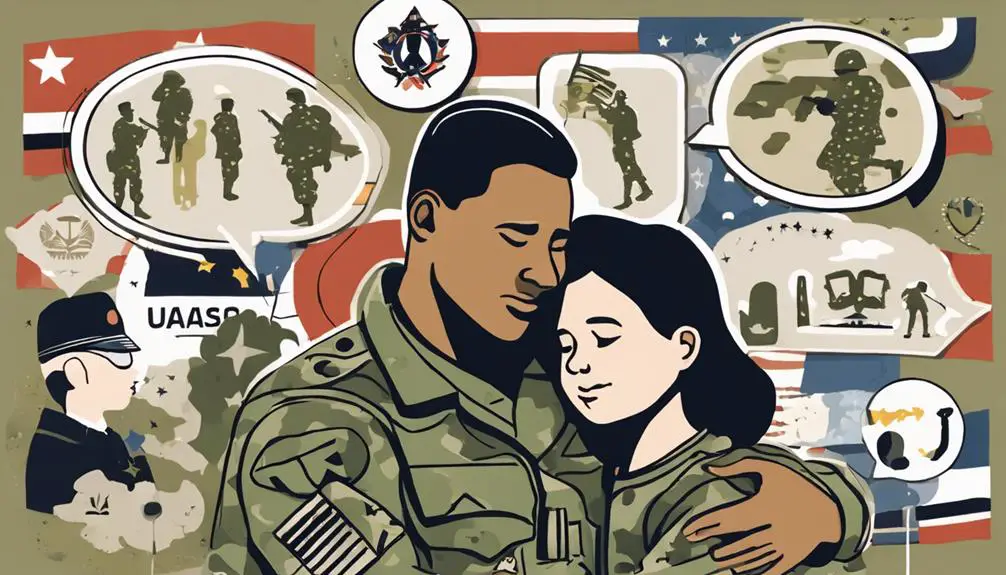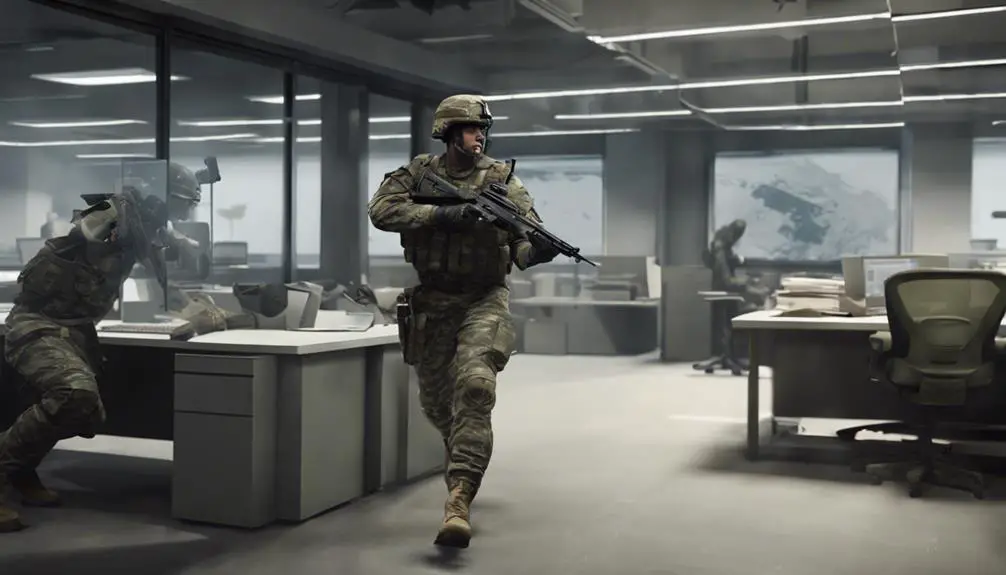You're about to crack the code of military slang, used by troops to communicate effectively in high-pressure situations. With over 15,000 acronyms, it's a language that's both essential and secretive. From the battlefield to family ties, military lingo is woven into every aspect of military life. You'll discover how phrases like "FOB" and "HOOAH" become lifelines during deployment. As you explore the world of military slang, you'll gain insight into the strong bonds between service members and their families. And that's just the beginning – there's more to uncover about this fascinating language.
Decoding Military Acronyms 101

As you immerse yourself in the world of military slang, you'll quickly realize that acronyms are an integral part of the language, with some estimates suggesting that there are over 15,000 acronyms in use across the US military. It's no wonder that understanding these abbreviations is essential to communicating effectively with military personnel.
But have you ever wondered where these acronyms come from? Acronym origins can be traced back to the early 20th century, when the US military started using abbreviations to simplify complex terms and phrases. Over time, these abbreviations evolved into the acronyms we use today.
The evolution of abbreviations has been shaped by the need for brevity and clarity in high-stress environments. As new technologies and concepts emerge, so do new acronyms. For instance, the term 'ASAP' (As Soon As Possible) has been used since World War II, while more recent additions include 'CID' (Combat Identification) and 'FOB' (Forward Operating Base).
Slang for the Battlefield
You'll hear phrases like 'Hooah' and 'Oorah' echoing across the battlefield, where military personnel use slang to quickly convey critical information and boost morale in high-pressure situations. This warzone wording is crucial for effective communication, allowing troops to respond swiftly to changing circumstances.
Tactical terminology like 'Hasty Defense' (a rapid setup of a defensive position) and 'SITREP' (situation report) helps soldiers adapt to shifting scenarios. When every second counts, using concise language saves lives.
Phrases like 'RTR' (return to rear) or 'Medevac' (medical evacuation) convey essential information quickly, ensuring a swift response to emergencies. In the heat of battle, using the right slang can be the difference between success and failure.
Military Lingo for Family Ties

In military culture, family ties are just as important as combat camaraderie, and specific phrases help service members connect with their loved ones back home. As you navigate the world of military lingo, you'll encounter terms that highlight the importance of family in a service member's life.
You might hear a soldier refer to their spouse as their 'better half' or their kids as their 'mini-mes.' These affectionate terms convey the strong bonds between family members.
When discussing family, service members often use 'Family Ranks' to describe their loved ones' roles. For instance, a spouse might be referred to as the 'CEO of the Home Front,' emphasizing their leadership and management skills in taking care of the household. Kids might be called 'Mini-Generals' or 'Future Warriors,' indicating their potential to follow in their parent's footsteps.
These phrases not only show affection but also acknowledge the sacrifices made by family members supporting their service member. By understanding these terms, you'll gain insight into the strong family bonds that sustain service members during their deployments.
Deployed: Words From the Front
When you're deployed, communication with loved ones back home becomes a lifeline, and service members rely on specific phrases to convey their experiences and emotions from the front lines. As you read through their letters, emails, or social media posts, you might come across phrases that seem like a foreign language.
But don't worry, we're here to support you. In the Frontline Chronicles, you'll find phrases like 'hurry up and wait' (meaning patience is a virtue) or 'got my six' (meaning someone's got your back). These phrases are more than just slang – they're a window into the warzone diaries of service members. They convey the highs and lows, the triumphs and struggles, and the everyday moments of life in a combat zone.
Behind the Jargon: Military Culture

Beyond the acronyms and slang, military culture is shaped by a unique blend of tradition, discipline, and camaraderie that permeates every aspect of service life. As you explore further into the world of military culture, you'll discover that it's not just about following orders or wearing a uniform – it's about being part of a tight-knit community that shares a sense of purpose and belonging.
Esprit de Corps, a French term meaning 'spirit of the body,' is an essential component of military culture. It's the intangible bond that forms between service members, fostering a sense of loyalty and teamwork. You'll find it in the way troops rally around a fallen comrade or celebrate a hard-won victory.
Uniform Traditions also play a significant role in shaping military culture. From the ceremonial uniforms worn during special occasions to the everyday attire worn by service members, each piece of clothing tells a story. You'll notice the intricate details, the precision, and the pride that goes into every stitch. It's not just about looking sharp; it's about representing a legacy of honor, duty, and sacrifice.
Frequently Asked Questions
What's the Origin of the Term "Grunt" to Describe Infantrymen?
You're wondering where the term 'grunt' comes from, right?
Well, it's got battlefield origins, dating back to the Vietnam War. The term 'grunt' refers to the sound infantrymen make when they're exhausted, carrying heavy packs and gear.
It's also rooted in boot camp roots, where drill sergeants would yell 'grunt work' to describe tough, dirty tasks.
Over time, the term stuck, and now it's a badge of honor for infantrymen who've been in the trenches.
Can Civilians Attend Military Ceremonies and Events Openly?
Imagine you're standing at the gates of a majestic castle, keen to experience the grandeur within. As a civilian, you're curious about attending military ceremonies and events.
The good news is, you're invited! Most military ceremonies and events are open to the public, with some requiring RSVPs or following specific ceremony protocols.
You'll need to respect event access rules, but with a little planning, you can experience the pomp and circumstance firsthand.
Do All Military Branches Use the Same Slang and Acronyms?
When you immerse yourself in the world of military slang, you'll find that each branch has its own unique flavor. While there's some overlap, Branch Variations in slang and acronyms are pretty common.
The Slang Evolution process also differs between branches, reflecting their distinct cultures and histories. For instance, the Navy's 'scuttlebutt' (rumor or gossip) mightn't be used in the Army.
You'll need to learn the specific lingo for each branch to stay in the know.
Are Military Slang Terms Used Universally Across Different Countries?
When you explore military slang across different countries, you'll find linguistic variations and cross-cultural nuances that set them apart.
While some terms might be universally understood, others are unique to a specific country or region.
You'll notice that each nation's military slang reflects its own cultural identity, historical context, and operational experiences.
Can Veterans Use Their Military Titles in Civilian Professional Settings?
You think you've earned the right to flaunt your military title in the civilian world, don't you? Newsflash: it's not that simple.
When shifting to a civilian professional setting, you'll need to rebrand your title to fit the new landscape. It's a title transformation, not a direct translation. Your military title may not hold the same weight, but it's about redefining your professional identity.
You've got the skills, now adapt the label to fit the new arena.
Conclusion
You've deciphered the code, traversing the complex world of military slang like a pro. Now, you're fluent in a language that's as nuanced as a well-oiled machine.
Think of it like having a secret key to crack the doors of military culture. With this newfound knowledge, you'll be able to decode even the most cryptic of conversations, moving seamlessly from civilian to insider.







